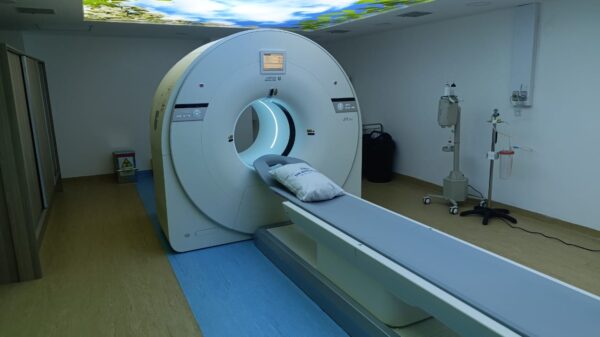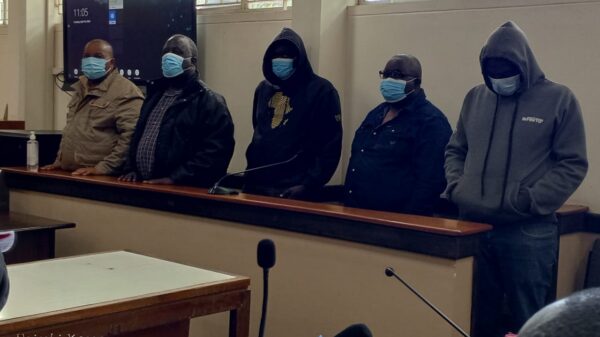TOKYO, October 28 – Battered stock markets rallied in Europe and Asia on Tuesday ahead of a key US Federal Reserve meeting in which the central bank was widely expected to cut interest rates further.
Amid new indicators of falling confidence among consumers in Europe, the head of the giant Renault-Nissan automaker group warned that the worst of the global financial crisis was yet to come.
But following a month of often dizzying falls in share prices, stock exchanges savoured a rare upturn amid expectations the Fed would announce on Wednesday a further cut in rates at the end of a two-day meeting in Washington.
After hitting a 26-year low on Monday, Tokyo\’s main Nikkei index soared 6.41 percent by the close and Hong Kong rocketed 14.4 percent higher.
In European morning trade, Frankfurt jumped almost nine percent, with German carmaker Volkswagen boosted as Porsche prepares to take over the company. VW shares briefly spiked above 1,000 euros.
The London market meanwhile added 1.35 percent, but Paris switched into a 1.03-percent loss having earlier gained more than three percent.
"The equity market was massively oversold and a rally was due," said RBS Securities analyst John Richards.
Meanwhile, the yen fell sharply against other major currencies amid the rally from Japanese share prices.
The Japanese unit, which has soared in recent weeks as people dump risky investments, dropped below 95 to the dollar and 120 against the euro.
Last week the dollar fell to the upper 90-yen level for the first time since August 1995, while the euro hit a six-year low below 114 yen.
Bringing sighs of relief around Asia\’s largest economy Tuesday, the dollar rose to 95.65 yen in late Tokyo trade, up from 93.64 in New York late on Monday. The euro rose to 120.06 yen from 116.45.
The sharp fluctuations on the markets have triggered growing calls for a major revamp of the global financial system, with British Prime Minister Gordon Brown and French President Nicolas Sarkozy both urging a complete overhaul of institutions such as the International Monetary Fund (IMF).
The pair were due to hold talks near Paris later in the day in a bid to coordinate Europe\’s line at a summit to be hosted by US President George W. Bush in Washington next month devoted to the financial crisis.
German Chancellor Angela Merkel is reportedly leading opposition to proposals from Sarkozy, which include creating an "economic government" for the 15-nation eurozone and setting up national sovereign wealth funds.
A day after a survey showed German business confidence had plunged to a five-year low in October, France\’s state statistics office released figures showing household confidence had dropped last month by three points.
The feeling that hard times lie ahead was captured by comments from the head of the Renault-Nissan automaker group who warned that the worst of the global financial crisis was yet to come, saying it could last into 2010.
Carlos Ghosn, the legendary manager who turned around Nissan a decade ago, said the auto industry was being pummelled by deteriorating markets in the rich world as well as a slowdown in emerging markets such as Russia and China.
"We have not seen yet the worst," Ghosn told a business forum in Tokyo.
"Even if the financial crisis stops, the consequences of the market slowdown in terms of unemployment (will) come. So far we have seen only the beginning of the consequences," he said.
There was more grim news on the auto front with Japan\’s Honda Motor Co. saying its net profit had slipped 19.1 percent in the first half and cut its full-year forecasts as a still strong yen undercut its performance.
After it led a coordinated global rate cut earlier this month that pushed its target rate down half a point to 1.50 percent, the Fed is seen as trimming the rate another 25 to 50 basis points after the two-day meeting.
Meanwhile Iceland, battling to stave off national bankruptcy, jacked up its key interest rate to 18 percent and announced a request for help from the European Central Bank and the US Federal Reserve.
Icelandic Prime Minister Geir Haarde told reporters that the country had not yet received replies to its request.
Iceland\’s once booming financial sector has collapsed under the weight of the worldwide credit crunch, forcing the government to take control of the major banks as its currency has nosedived.


































